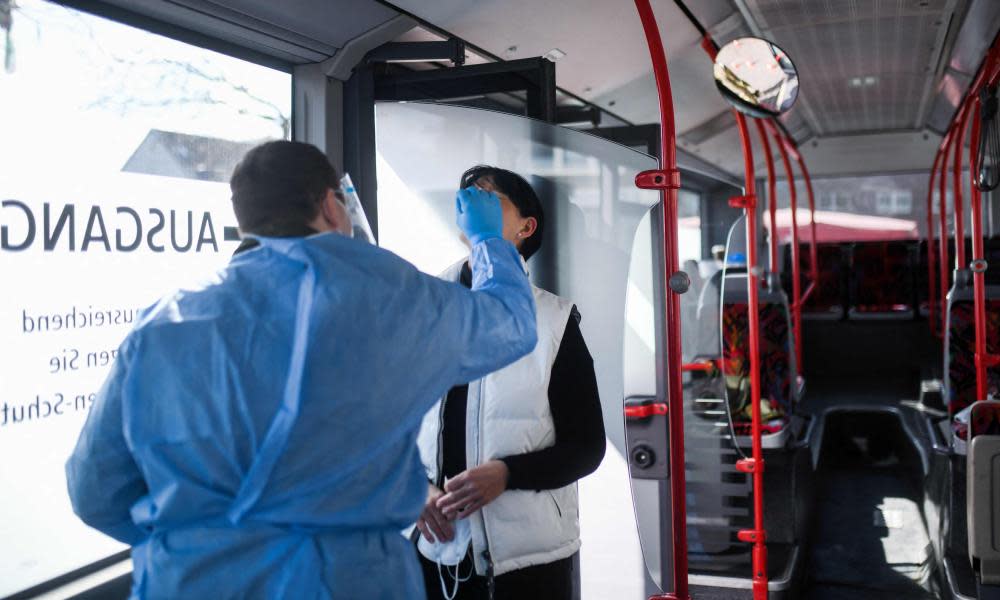Germany’s third Covid wave needs drastic measures, says health chief

The head of Germany’s disease control agency has called for drastic measures to curb the country’s third wave of coronavirus infections, with intensive care beds filled to capacity in some areas.
Lothar Wieler, the director of the Robert Koch Institute (RKI), said Germans needed to drastically reduce contact with each other to rein in the third wave, which he said would get worse as long as it remained out of control.
“As feared and predicted,” Wieler said, the more infectious B117 mutation, first detected in the UK, was responsible for 90% of infections. More patients would need intensive care treatment than during the second wave, which reached its peak in January, he said.
The RKI registered more than 29,000 new cases on Thursday. Most of those being infected were in the 15 to 49 age group, much younger than those in the first two waves, and increasingly younger people were being admitted to ICUs, Wieler said.
Patients were increasingly having to be transferred between regions to hospitals with more capacity, he said.
The number of cases in the over-90s is also on the rise. Death rates have levelled off over the past two or three weeks, but have not gone down. Almost 80,000 people in Germany have died of the virus.
Almost 5,000 ICU beds are taken up by Covid-19 patients, and the figure is expected to rise to 6,000 by the end of the month. Covid patients also made up 80% of those in hospital on heart and lung replacement machines to keep them alive, Wieler said.
He and the health minister, Jens Spahn, told a joint press conference in Berlin that they supported Angela Merkel’s proposal for a night-time curfew to help quell the pandemic.
Although imposed in other countries, Germany has so far not faced such a strict measure. It has been proposed as part of a controversial amendment to the federal infection protection law, which cabinet approved on Tuesday and which is intended to centralise control over measures to tackle the pandemic.
The law will enable the federal government to impose a nationwide “emergency brake” whenever the incidence rate reaches 100 cases per 100,000 for a seven-day period or more. MPs are expected to vote on the amendment next week.
Germany’s incidence rate is currently higher than 160, meaning a curfew would be imminent if the amendment passes. MPs, however, have said they will challenge it and numerous experts have described it as unconstitutional.
The country’s vaccine programme is finally gathering pace after a slow start. Between 500,000 and 700,000 jabs a day are being administered and 17.6% of Germans have received their first shot.
Compulsory testing is also being introduced in schools from next week. However, Wieler said the two measures were not enough to “break the third wave”, not least because most of the population had not been vaccinated. Contact reduction remained the most effective measure, he said.
Major companies such as BASF and VW have begun in-house vaccine programmes for their employees, and more companies are expected to do so from June. The number of GP practices in the vaccination campaign is expected to rise to 50,000 by next week.
Spahn said the government was still confident its promise that every adult would receive a vaccine appointment by the end of the summer could be delivered. He also said that if the third wave could be controlled, he was optimistic that summer holidays would be on the agenda. “Whether everyone will be able to fly to the Seychelles, I don’t know,” he said. “But the North Sea coast is certainly within reach.”
It was announced on Thursday that Merkel, 66, is to receive the AstraZeneca vaccine on Friday. The shot is only recommended for over-60s in Germany.

 Yahoo News
Yahoo News 
